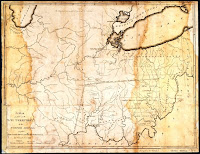Both critics and proponents of administrative law’s constitutional pedigree have posited a constitutional “hole” surrounding administration at the time of the Constitution’s drafting. Challenging this account, this Essay examines the Northwest Ordinance and the territorial government it established as a progenitor of what later became known as the administrative state. The statute empowered unelected, federally appointed officials outside the Article III judiciary to exercise legislative and judicial authority over U.S. citizens. This constitutional history underscores that the creation of the United States did not simply repudiate British imperial models in favor of concepts of popular sovereignty and equal footing. Rather, in the territories, the new federal government chose to reconstruct colonial structures of governance over its own citizens, a process that reopened pre-revolutionary debates. This Essay traces two particularly intense constitutional controversies in the Northwest Territory in the 1790s that both had strong prewar echoes: contests over the relationship between civil and military authority, and fights over the territories’ legal status within the new constitutional order. Both debates, I argue, were litigated within the early American territorial analog of the administrative state, but neither achieved any definitive resolution. Rather, the temporary nature of territorial status allowed the new nation to evade the tensions between territorial governance and the Revolution’s purported republican principles, deferring this challenge to future generations.
Map of Part of the Northwest Territory, 1796 (NYPL)
Monday, June 10, 2019
Ablavsky on Administrative Constitutionalism in the Northwest Territory
Gregory Ablavsky, Stanford Law School, has posted Administrative Constitutionalism in the Northwest Territory, which is forthcoming in the University of Pennsylvania Law Review:
